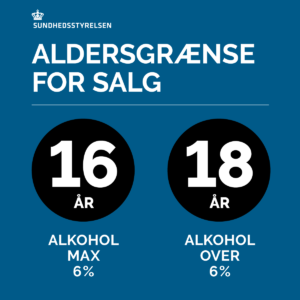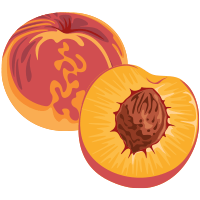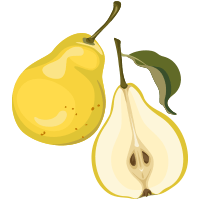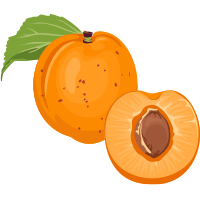Remarkably fragrant and with generous aromas of fresh peaches, pears and nectarines, which are offered by subtle notes of hyacinths, apricots and crushed rose petals. The taste is gloriously silky smooth with a clean and fresh crispness that delivers enticing flavors of mango, melons, lemon chiffon and tangerines. Slightly deeper layers reveal hints of sweet cherries and vanilla with hints of orange peel. A luxurious and lasting aftertaste leaves you with traces of apple pie, strawberry and kiwi.
Californian rosé from the Grenache grape in the classic and beloved Provencal style.
91 POINT Decanter
A refreshing and dynamic Provence-style rosé
Strawberries, peaches, apricots and white flowers on the nose give way to pink grapefruit and red berries on the palate. A refreshing and dynamic Provence-style rosé with elegant vanilla notes from the oak treatment. Food-friendly and versatile.
91 POINTSWilfred Wong
Stylish and made in the Provençale style.
The 2021 DAOU Discovery Collection Rosé is stylish and made in the Provençale style. TASTING NOTES: This wine shines with aromas and flavors of mineral notes, tart raspberries, and savory spices. Enjoy it with fresh, raw salmon and avocado rolls.
91 POINTWine Enthusiast
This wine is a shade of cantaloupe, and that fruit shows on the nose of this bottling alongside ripe apple and bubblegum aromas. There is a firm tension to the palate, where melon flavors are cut by wet stone elements.
About DAOU
It all began when Joseph and Marie Daou were married in Lebanon. Beirut was then known as the Paris of the Middle East, a modern and cosmopolitan city, and Joseph Daou ran one of the most successful furniture companies in the entire Middle East. Daniel grew up here, together with his brother Georges and the two sisters Marie Jo and Michelle. After many visits to their grandfather’s olive groves, they fell in love with a rural lifestyle. In 1973, however, civil war broke out and a missile landed on the pavement in front of the family’s home, sending shrapnel through the house. After two years of repairs, physical as well as psychological, the war escalated and the family fled to France. Cannes became the destination and it was here, surrounded by vineyards, that Daniel and Georges found their love for wine.
In the early 1980s, however, they moved to the United States, where they started a computer company, far from vines and terroir. It was only in 1998, when the brothers sold the company, that an old dream with roots in France took over: It was time to open a winery. The brothers looked for the best terroir for Cabernet Sauvignon and found DAOU Mountain – a mountain that Russian oenologist André Tchelistcheff had called a jewel decades before. In the years after Prohibition in the United States, he was one of the country’s most influential winemakers, so it was something the brothers took seriously. They therefore bought the old Hoffman Mountain Ranch, which had produced good wines with the help of Tchelistcheff in particular, and set it up.
On the mountain, they found the same soil as in Saint-Émilion, with limestone and calcareous clay – perfect for Cabernet Sauvignon and other Bordeaux varieties. The mountain has slopes of up to 56% and is cooled by the nearby Pacific Ocean. In true American fashion, the brothers don’t put their lights under a bushel and call the climate the best in the world for Bordeaux varieties and Cabernet Sauvignon. Also better than Bordeaux.
The yeast from DAOU Mountain is used in more than 30 countries worldwide
Daniel Daou was one of the first to bring Cabernet clones to Paso Robles and planted many vines on steep slopes. With a scientific approach, he created his own phenolic system, which ensures some of the most intensely colored, aromatic and ageable Bordeaux-based wines in the world. After cultivating hundreds of wild yeast spores from DAOU Mountain, he isolated one yeast that ensures excellent wines that thrive in high temperatures – and to this day, DAOU Mountain yeast is used in more than 30 countries around the world.
From the beginning, Daniel Daou focused 100% on French oak casks, but soon he wanted to create his own casks from rare French Rosé Bois woods with pink wood and barrels from trees in Jupille. Dishes which are considered to be some of the finest and rarest in the world. The innovation does not stop here, however, and 4-6 times a year Daniel conducts various experiments to achieve new vinous heights.
Ten years ago, Paso Robles was known for Zinfandel and Rhone grapes, while world-class Cabernet sounded a bit like hubris. Nevertheless, DAOU Mountain’s first Soul of a Lion scored 96 points in Robert Parker’s Wine Advocate and made it clear that Paso Robles should be watched when it came to California – and not just Napa Valley.
Today, perhaps the best Cabernets on the Central Coast come from DAOU Mountain – wines that like to measure themselves against the best in the world. At the same time, the rest of Paso Robles has opened its eyes to Cabernet and other Bordeaux varieties to such an extent that 57% of Paso Robles is now planted with those grapes. Today, Daniel is a bit of a champion for Cabernet in Paso Robles and shares his experiences with friends and neighbors in the Paso Robles CAB Collective, working to mark the area among the world’s elite.




